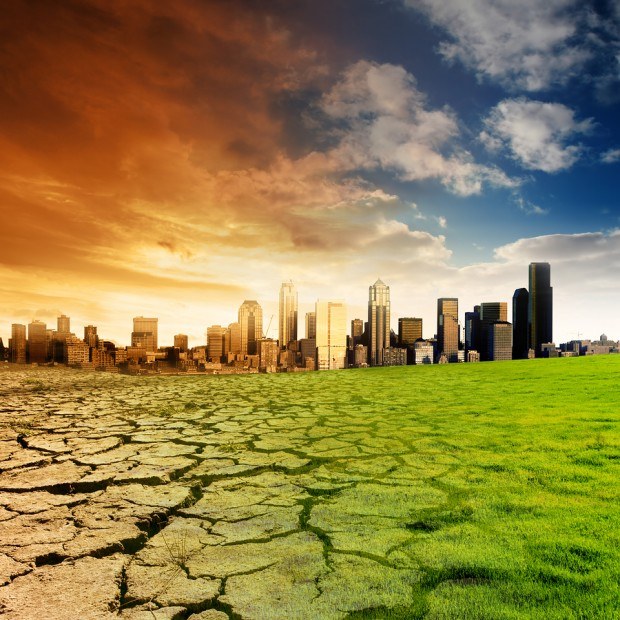The World Economic Forum is sounding alarm bells on climate change, with environmental risks occupying the group’s top five long-term concerns for the first time on record.
Extreme weather events, the failure of climate-change mitigation, major natural disasters, biodiversity loss and human-made environmental damage were the risks identified as most likely by respondents in the WEF’s 2020 report. It’s the only time in the survey’s 14-year history that climate-related concerns took all top spots.
Economic confrontations and domestic political polarization were also recognized as short-term issues by global experts and decision-makers, the report published Wednesday showed.
Confronting climate change will be a key topic of discussion when business and political leaders meet in Davos, Switzerland, for the WEF’s annual meetings next week. In a presentation prepared for the meeting, Deutsche Bank strategists said that the “question of our age” is how much societies would be willing to sacrifice in economic growth to reverse climate change, and that governments will need to work across borders to find solutions.
“The political landscape is polarized, sea levels are rising and climate fires are burning,” said WEF President Borge Brende. “This is the year when world leaders must work with all sectors of society to repair and reinvigorate our systems of cooperation, not just for short-term benefit but for tackling deep-rooted risks.”
Failure to work together would be “catastrophic” for addressing challenges like the climate crisis and species decline, according to the report.
The WEF report also called on policy makers and firms to match targets for protecting the climate with ones that boost economies, and for companies to adjust to science-based targets now in order to avoid massive future losses.
“We are already seeing companies destroyed by failing to align their strategies to shifts in policy and customer preferences,” said Peter Giger, group chief risk officer at Zurich Insurance Group. “Transitionary risks are real, and everyone must play their part to mitigate them.”
Asked at a press conference about whether there was a gap between the group’s rhetoric and the reality of CEOs and politicians flying to Davos on private jets, WEF managing director Adrian Monck said that “the sustainability measures we put in place actually overcompensate for the annual meeting.” He cited carbon offsets, travel by train, and biofuels available at Zurich airport as mitigating measures.
Brende also highlighted the risk of recession, with more than 75% of the survey’s respondents putting economic and geopolitical turmoil at the top of their concerns. “We are faced with a synchronized slowdown in the global economy,” he said at the press conference in London. “And we’re also faced with a situation where the ammunition that we have to fight a potential global recession is more limited.”
(Updates with quotes from press conference)
–With assistance from Samuel Dodge.





















 10 Do’s and Don’ts of a Smart ORSA Report
10 Do’s and Don’ts of a Smart ORSA Report  AI Got Beat by Traditional Models in Forecasting NYC’s Blizzard
AI Got Beat by Traditional Models in Forecasting NYC’s Blizzard  Teens’ First Year on the Road Most Deadly
Teens’ First Year on the Road Most Deadly  Why Claims AI Build vs. Buy Decisions So Often Miss the Mark
Why Claims AI Build vs. Buy Decisions So Often Miss the Mark 









